Views: 0 Author: Site Editor Publish Time: 2025-07-09 Origin: Site
■ Improve background and purpose
Currently, stamping die parts for air conditioner outdoor units—such as covers, left/right side plates, and baffle plates—all feature large bending characteristics that require die forming. Due to the bending properties of the stamping die, springback cannot be accurately calculated in a single attempt, often necessitating multiple die adjustments to meet dimensional drawing requirements.
Additionally, during the bending process, issues such as deformation and dezincification frequently occur. These problems require repeated modifications to the punch and die, resulting in increased tooling costs and extended manufacturing lead times.
■Date analysis
(1) . During the first phase, an AutoForm-based CAE simulation is conducted to analyze the bending process, calculating springback coefficients and blank holder force (BHF). Refer to Figure 1 for the CAE simulation diagram of baffle plate bending formation(Figure 1).
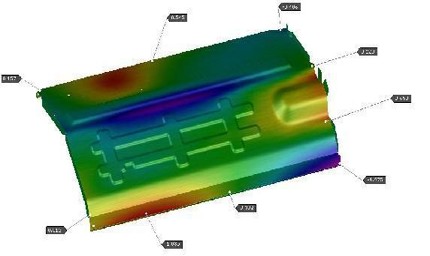
(2). By statistically analyzing historical springback data from previous similar bending products and integrating CAE simulation results, we optimize the modeling of product bending rebound angles(Figure 2).
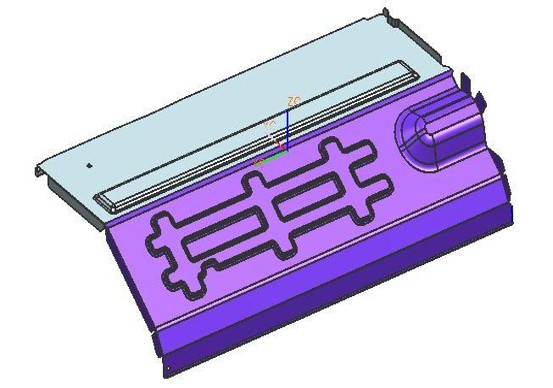
■Blending structure optimization and application
(1) bloke bend tool structure(Figure 3).
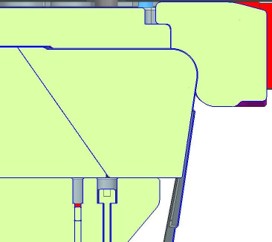
(2). Cam bend tool structure(Figure 4).
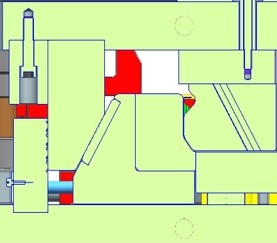
(3). Rounded corner tool structure(Figure 5).
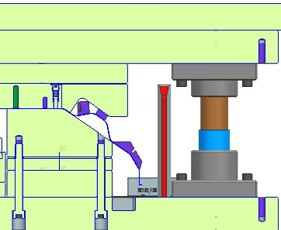
■Tool structure creation
(1)Bending Die Structure Design Standard: Since the CAE analysis of angle springback cannot be entirely precise, the die surface must be modified based on trial production data. To reduce modification workload, the die incorporates adjustable spacer blocks secured by side screws. During rework, only shim adjustments are needed, minimizing the need for new part fabrication, reducing costs, and shortening die modification lead time. (Figure 6).
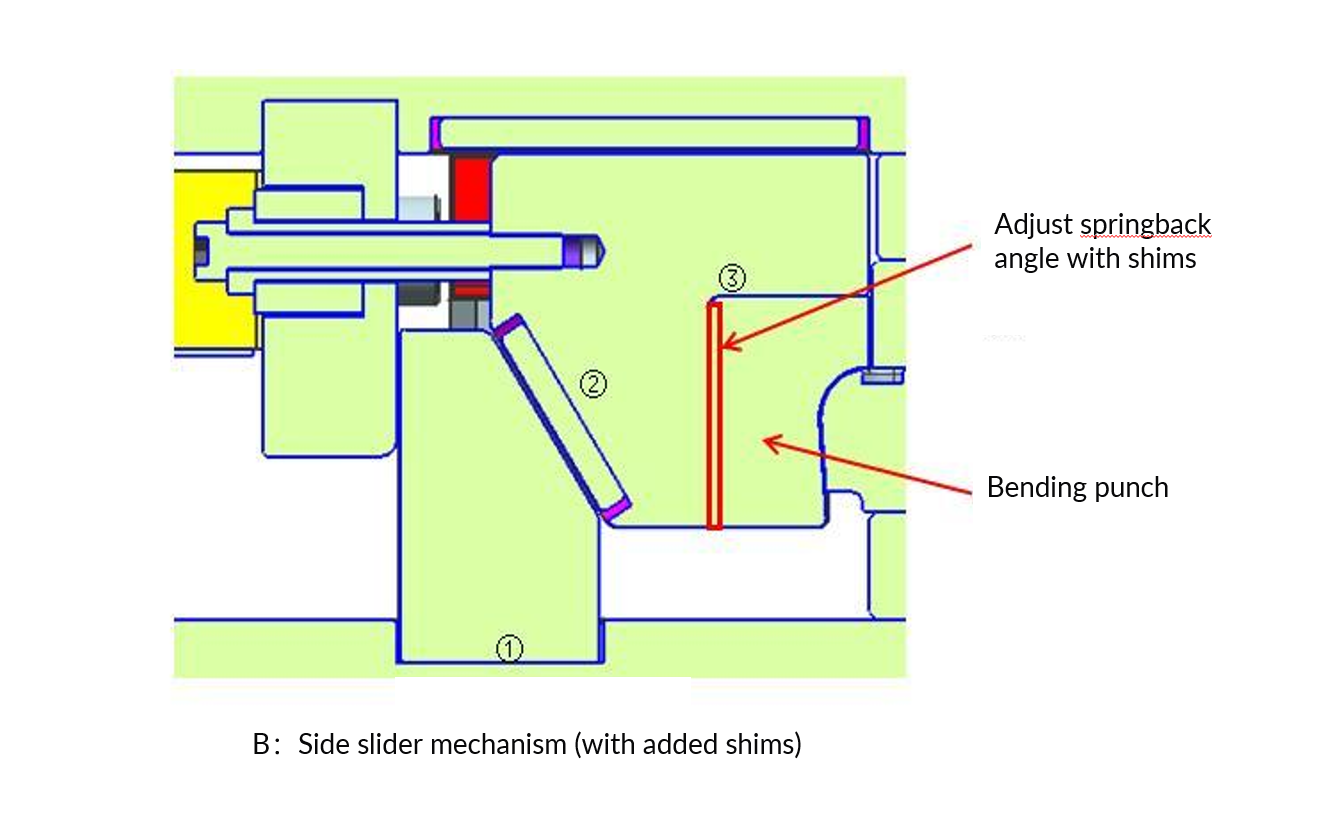
(2)Bending Die Height Design Standard: To eliminate product indentation issues after bending, the fully enclosed die structure (fully wrapping the product) is the preferred design.
If the bending edge height is excessive, the straight wall section from the die to the arc quadrant point must maintain a minimum distance of 40mm, with a bending radius of R5 or larger (Figure 7).
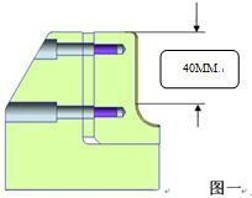
(3) Bending Die Height Design Standard: To eliminate indentation marks on bent products, the straight wall section at the die's arc quadrant must maintain a minimum 40mm clearance, with a bending radius no smaller than R5(Figure 8).
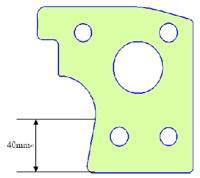
(4)Bending Die Structure Design Standard: Since CAE analysis cannot accurately predict angle springback, die surface modifications must be made based on actual trial stamping data. To reduce die modification workload, the block holder is designed with replaceable inserts. When surface rework is required, these small inserts can be replaced to provide sufficient allowance for punch repair. ( Figure 9)
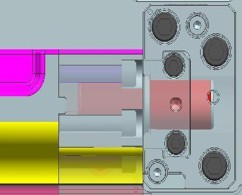
■Conclusion
Proper utilization of the AUTO Form software for product simulation analysis enables accurate prediction of forming angle, springback, and other critical data. Combined with accumulated technical expertise, this approach ensures optimal selection of bending structures. The methodology significantly reduces mold modification iterations, thereby lowering manufacturing costs and enhancing the company's market competitiveness.
content is empty!
content is empty!
ZHUHAI GREE DAIKIN PRECISION MOLD CO., LTD.